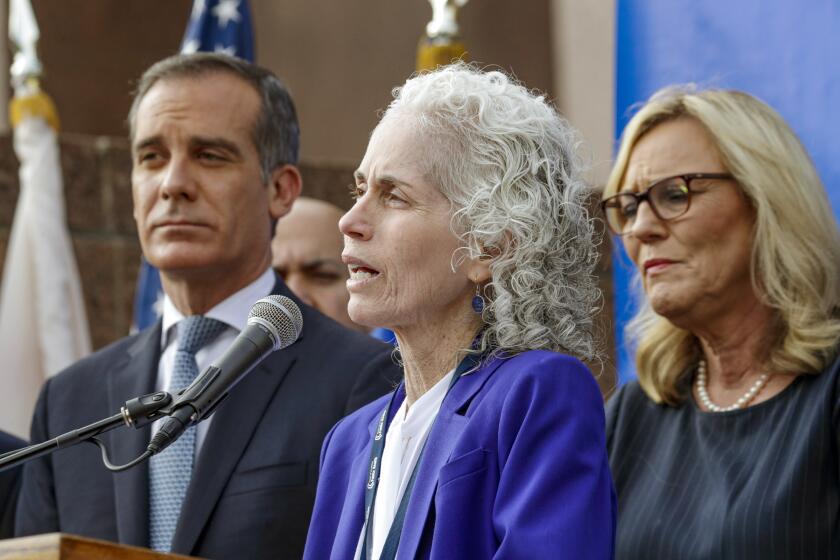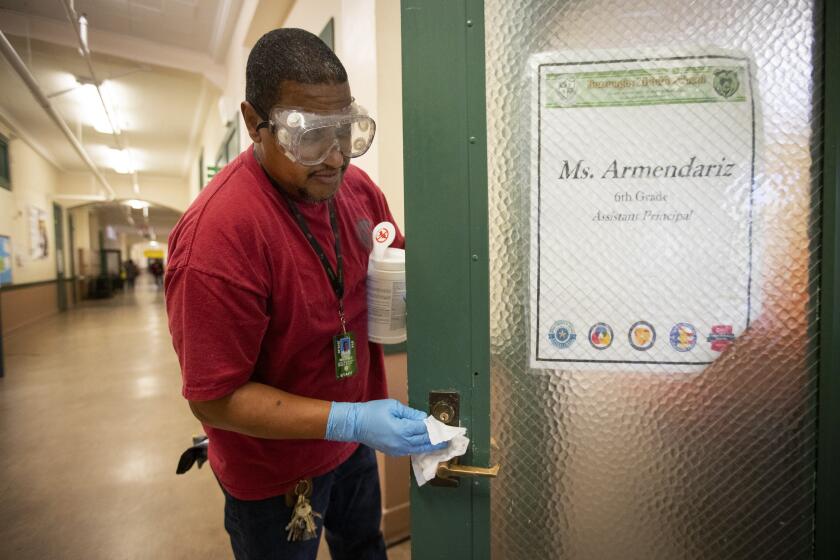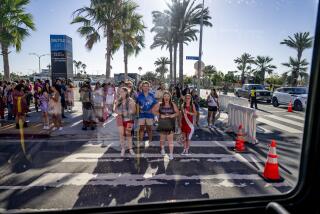As coronavirus prompts cries to cancel SXSW festival, a ‘general fear’ sweeps concert industry
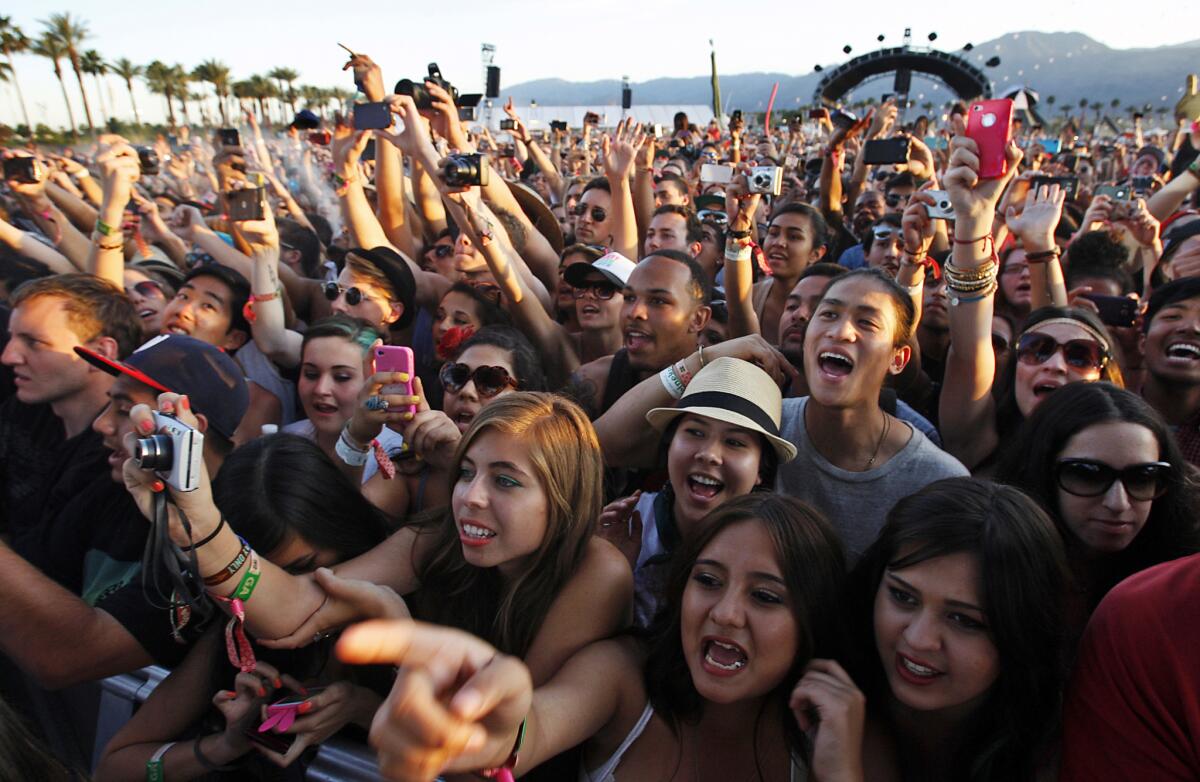
Last week, organizers announced that the Korea Times Music Festival at the Hollywood Bowl was being postponed “due to current travel restrictions in Asia” over fears of COVID-19, the strain of coronavirus that has swept across Asia, Europe and the Middle East and spread to the U.S. too. While few U.S. concerts have been affected yet, it’s clear that the virus will hit the live music industry in some way here.
As acts cancel major shows across Asia, and with the start of the spring-summer festival season just weeks away, artists, booking agents and promoters are warily eyeing the disease’s spread. It’s mainly affected the Asian concert business for the time being, but it could be a severe blow if and when the virus spreads more widely in the U.S.
“It’s so hard to tell. This was going to be one of the busiest summers ever for festivals and stadium shows, so any disruption is going to have an impact,” said Dave Brooks, senior director of live and touring for Billboard. “If there are cancellations, and if it’s a down year for the industry, [top concert promoters] Live Nation and AEG could probably weather it, but it could be a death knell for some independent promoters.”
Gov. Gavin Newsom declared a state of emergency over the novel coronavirus after a California man died after falling ill with the virus while on a cruise ship.
So far, there have only been about 11 confirmed U.S. deaths, including one in California , but officials do expect it to spread more widely in the coming weeks. At least 51 people in California have been diagnosed with the virus, and both Los Angeles, San Francisco, Orange County have declared health emergencies.
While many industry professionals are trying not to be alarmist, they are making plans for the possibility of the virus — or even just fears of it — having a deep impact on the concert business this year.
“If a pandemic like this restricts travel, if bands from here can’t tour Asia and K-pop and J-pop acts can’t come here, everyone’s going to take a hit,” said one high-level concert promotion executive in the U.S. who requested anonymity to be able to speak freely. “You’ll see venues closed down. If people become alarmed and alert, they’re more likely to stay away from air travel or large groups.”
So far, most of the bigger concert cancellations have been in China, South Korea and Japan, where Western acts like Green Day, Khalid, New Order and Stormzy, and K-Pop groups like Seventeen and Twice, have canceled planned appearances.
Even K-pop juggernaut BTS, which planned a massive stadium tour tied to its “Map of the Soul: 7” album, has canceled hometown gigs in Seoul. Several acts, including the metal band Testament, have also canceled dates in Milan, Italy, where the virus has also spread in the northern part of the country.
That’s left U.S. promoters wondering whether acts that have passed through affected countries may eventually be hit with travel restrictions preventing performances, or if risks of the virus spreading could shut down U.S. shows as well.
The battle against the coronavirus was reaching a critical moment in the United States, with the number of deaths rising Tuesday.
Several prominent booking agents, when reached for comment, acknowledged the seriousness of the fears but declined interviews, citing the uncertainty around the possibility of a pandemic in the U.S. Others were already making plans should it prove to be an obstacle to touring.
“There’s a general fear. Other offers for later in the year are still being entertained, but we’re wondering,” said Eric Dimenstein, president of Ground Control Touring, a booking agency that handles rock acts like Bright Eyes, Jenny Lewis and Deafheaven. Ground Control handles Asia touring for several of its acts, and one of its U.K. acts has already canceled tour dates in an affected country over fears of being let back into Britain afterward.
Dimenstein acknowledged that COVID-19 will likely have an impact and said he is in conversations with managers about potential fallout. But he was cautious about making assumptions in either direction.
“Right now, we’re just watching. Some artists seem to understand that the media makes things bigger than they are,” he said. “But no one wants to do it and then have the consequences and bad PR for going ahead when others don’t. I wouldn’t be surprised if in the next week or two, we see more cancellations. Some shows didn’t even get to confirmation because of these fears. It’s gonna take a hit, everyone is.”
So far, not much has changed for major U.S. events. Marquee events like Indio’s Coachella Valley Music and Arts Festival, scheduled for April 10-12 and 17-19, have already sold out dates, and beyond the Korea Times event, no major U.S. concerts have been affected yet.
Kim Saruwatari, director of public health for Riverside County, in which Indio is located, said the county is well aware of how COVID-19 might affect the festival, which draws 125,000 fans over each weekend.
“One of our tasks is to survey any large event in the county over the next several months, and we’ve been reaching out to organizers to have conversations. We’re not ready to pull the trigger on anything, but we want to make sure we can protect the community,” Saruwatari said.
Dr. Cameron Kaiser, the health officer for Riverside County, “has broad authority to protect public health, and if he deems that being at the fest would pose a risk, he has the authority to shut it down,” Saruwatari said. But conversations about those risks are nowhere near that stage yet.
“This virus is changing day by day, hour by hour,” Saruwatari said. “We’re monitoring it very closely. We don’t have a timeline or cutoff. We’re going to have conversations with the organizers and do our best to give advance notice, but it’s a fluid situation.”
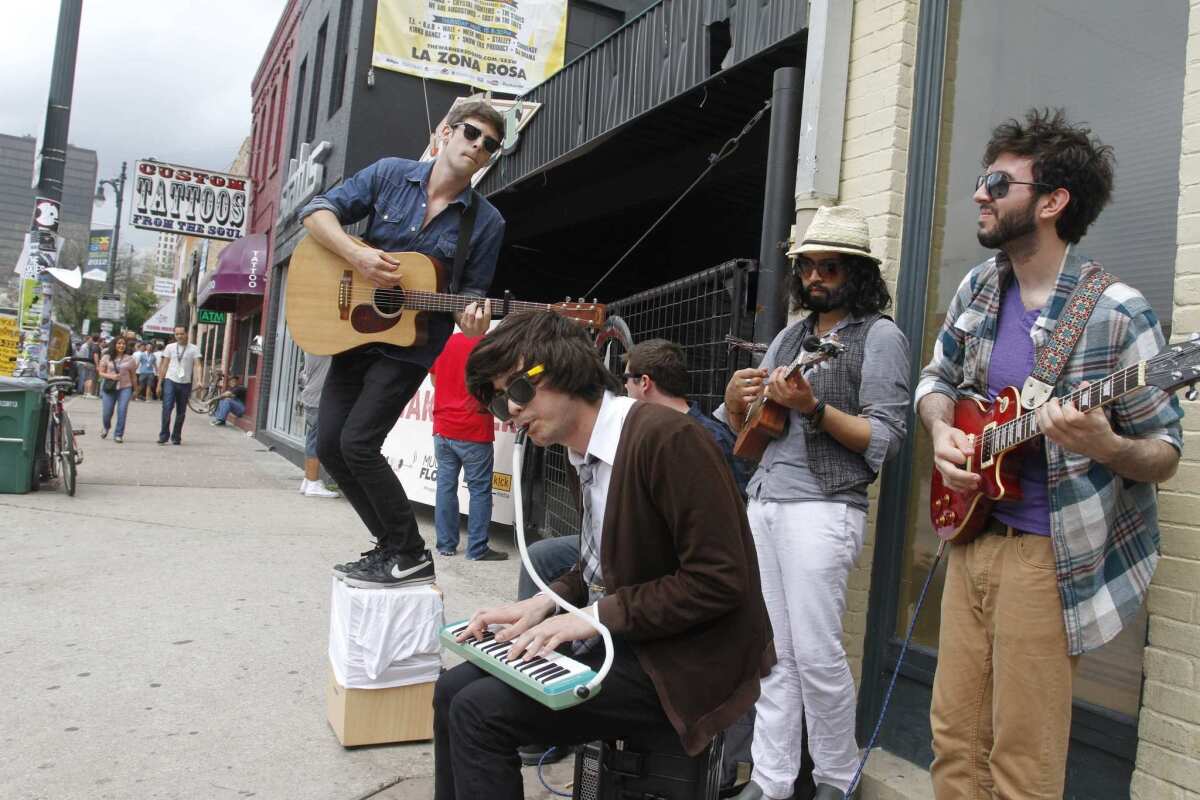
This month’s South by Southwest festival in Austin, Texas, is already facing calls for preemptive action, if not outright cancellation.
Andy Langer, a longtime “Austin City Limits” radio host and Texas Monthly writer who covers SXSW, wrote this week in a widely circulated Facebook post that “the logistics and optics of 10-day festival hosting thousands from all corners of the earth partying it up — even if guided by an abundance of caution — puts too many entities at risk. Not just by way of public health, but in a potentially legally liable/uninsurable way and places them potentially sideways with the almighty court of public opinion.
“Fear is contagious and it snowballs quickly into an icy wall of pile-on backlash.”
The Concord record label group confirmed that it has canceled a planned SXSW event over COVID-19 concerns, as have executives for Twitter, Facebook and Tik Tok. Ruth Martinez, the senior vice president for worldwide human resources at Concord, said in an email, “Our decision to cancel our SXSW Happy Hour is based on the travel policy that we put into effect for the entire company last week. For the foreseeable future, we are not permitting our team to travel internationally and we are strongly discouraging travel domestically.”
A change.org petition to cancel the event completely has gathered more than 25,000 signatures. Festival officials said in a statement that “SXSW is working closely on a daily basis with local, state, and federal agencies to plan for a safe event. As a result of this dialogue and the recommendations of Austin Public Health, the 2020 event is proceeding with safety as a top priority.”
More hand sanitizers in galleries. More sinks to wash hands. For arts institutions mapping out contingency plans amid the coronavirus crisis, that’s just the start.
In an earnings call last week, Live Nation President Joe Berchtold said that while “we expect there will be further areas of breakouts, we have seen no pullback in fan demand outside of the affected areas.” He added that Live Nation, the country’s largest concert promoter, has canceled 17 shows in Asia so far, and that “attendance is weighted to the latter part of year.” The firm has 70 shows planned in the next three months in Asia, and 30 in Italy.
Yet if the virus spreads more widely in the U.S., or if fans begin fearing that it might, that could put the concert business on edge if it leads to cancellations or slowing sales.
“Obviously, we’re going to be monitoring it closely and reaching out to affected areas and governments if it goes on and on,” said the top concert industry executive. “It’s our job to monitor this on a global, national and regional level to have steps in place if it comes to a place where we have to deal with it. Outdoor shows are less susceptible, but it’s a risk for anybody.”
Still, fears of coronavrius could snowball even if it doesn’t rise to a pandemic in the U.S. With some grocery stores sold out of staple provisions and a nationwide run on hand sanitizer and face masks, audiences are clearly anticipating a long spring and summer watching the possible spread of the virus.
Perhaps with precautions, most shows will eventually go on as planned in the U.S. and Europe. “At the end of the day, the venues will still be standing and people will still like music,” Billboard’s Brooks said. “There’s no reason to think there will be much long-term damage. The shootings at Route 91 in Las Vegas and the Bataclan in Paris didn’t stop people.”
But if fans avoid crowded spaces like festivals, or if travel becomes too difficult, this year could be a blow to a business that depends on touring for its subsistence.
“There’s a lot of conversation, but until we see what happens, it’s tough to tell,” the anonymous concert industry executive said. “We’re better prepared than China was. But man plans, and God laughs.”
More to Read
The biggest entertainment stories
Get our big stories about Hollywood, film, television, music, arts, culture and more right in your inbox as soon as they publish.
You may occasionally receive promotional content from the Los Angeles Times.
